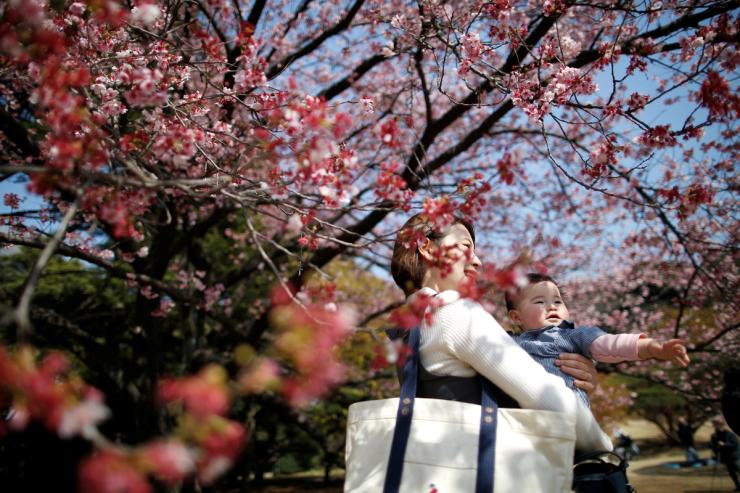The News
Japan has recorded its lowest number of marriages in 90 years, with fewer than 500,000 couples tying the knot last year, according to data published Tuesday, as young people grapple with financial obstacles and the effects of pandemic-era isolation.
The latest numbers on Japan’s ‘marriage ice age’ come as the government plans to roll out a new bill described to help reverse its falling birthrate, by providing couples with extra cash for childcare, Nikkei Asia reported.
Last year, Japan’s Prime Minister Fumio Kishida described the country’s demographic problems as “the biggest crisis Japan faces,” adding that support for child-rearing should be the country’s “most important policy.”
Measures to boost marriages and birthrates have been introduced by other countries across East Asia where rates are also plummeting — though the effects of these incentives are still unclear.
SIGNALS
Some believe Japan focuses too much on alleviating the costs of childcare
Many young Japanese don’t see marriage as a priority because of the challenges posed by high costs of living and a tough job market, the Associated Press reported, while the isolation brought about by the COVID-19 pandemic made it more difficult for young people to date.
Japan is known for its intense corporate culture that often doesn’t allow both parents to work while raising children. But some experts believe that current government policy focuses too much on covering the costs of childcare, Nikkei Asia reported, while it is young people who are more in need of financial support. “The decline in desire to get married among low-income people is significant,” an analyst at the Japan Research Institute told the outlet. The cut-off for providing support to low-income workers should be raised in line with inflation, he said.
South Korea also sees a decline in marriage and births despite spending billions on incentives
Decades of attempts to boost South Korea’s declining population, its birth rate hit a record low last year – despite spending around $270 billion on programs to persuade couples to have more children since 2006, The Guardian reported. As in Japan, couples in South Korea fear the high costs of childcare, skyrocketing property prices, and a “cut-throat education system,” The Guardian said. Cultural factors also play a big role: in deeply patriarchal South Korea, marriage is still considered a prerequisite for having children, and working mothers are frowned upon.
A quarter of South Korean women in their thirties surveyed in a 2020 poll said they were “happy living alone,” The Atlantic reported, while another quarter said that “the culture of patriarchy and gender inequality” was their main objection to marriage. The men surveyed in the same poll said that their main hesitation to get married was for financial reasons.



